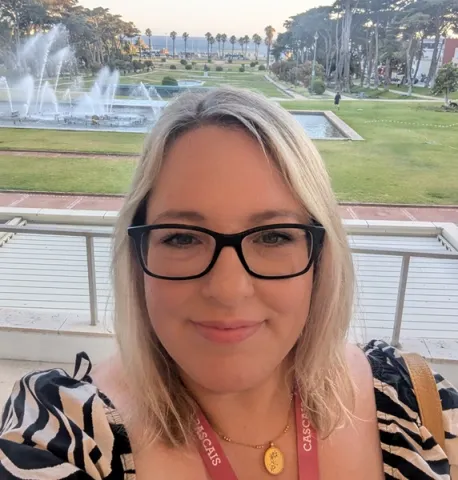Project overview
n this project, are developing and evaluating health education films on family planning in two areas of Uganda. We are comparing whether people prefer a documentary or a drama. The films have been made with local drama groups and people in Uganda, by Prof Jane Plastow and her team from the University of Leeds. We have shown the films to groups of local women, men and health workers to get their feedback. We are now using this feedback to improve the films. The next versions of the films will be shown to different groups of people in Uganda, and further improvements will be made if needed.
At the end of the project we will have health education films on family planning, which can be screened in health centres in Uganda, to help people make well informed choices about family planning.
Every year, thousands of women and children in Uganda die as a result of problems during pregnancy and childbirth. Our research in 2011-2015 showed that about 20% of these deaths could have been avoided by use of contraception, to prevent unwanted pregnancies. Many women never return to a health facility after giving birth, but there is a crucial opportunity to provide them with contraception while they are still at the health facility, after giving birth. Although several projects have trained health workers to provide the contraceptive coil immediately after delivery, few women go home with a method of family planning in Uganda.
To understand why, our team interviewed 80 women, men and health workers in Uganda in 2015. We found that many women wanted time to discuss contraception with their husband (who was often absent at the time of delivery) and to recover from the birth. Women feared side-effects such as bleeding, and the impact these would have on their marriage; men were also concerned about side-effects and the cost of managing these. Several people believed scare stories, for example that the coil could travel to other parts of the body or cause cancer.
Many people we interviewed suggested that more awareness-raising on family planning was needed, and that women who have successfully used family planning should share their experiences with others. Some people suggested that men should accompany their wives to antenatal clinics (which rarely happens in Uganda) to discuss future family planning with a health worker. Although health education materials exist on family planning, low levels of literacy in rural Uganda mean that written materials are not suitable, but people could access health information through films. Previous health education documentaries and dramas have been made, but with very little, if any, involvement of local people. We also do not know whether people would respond better to a documentary (with interviews of real people) or a drama.
In this project, we would like to test whether health education films are feasible and acceptable to people from different ethnic groups, in two different languages, in two areas of Uganda. In each area, we will make one short (5 minute) documentary and one short drama. These will aim to dispel some of the commonest myths on contraception, to encourage men to attend at least one antenatal clinic with their wives, and to discuss with a health worker whether they would like a method of family planning after the delivery. We will seek to assess whether factual or fiction films make a more significant impact.
A partnership is crucial to the success of this project, by bringing together experts in African theatre and film with experts in community health and family planning and experts in behavioural change interventions. We have involved local Ugandan men and women by interviewing them for the documentaries, and creating a culturally appropriate drama. We have obtained feedback on the first versions of the film from 18 focus groups of local men and women in four areas of Uganda. We have edited and improved the films based on their feedback. We are now showing the improved versions to more focus groups in Uganda, to get their feedback, and will make further improvements if needed.
The health education films we are developing could be shown in health centre waiting rooms during antenatal clinics, in community meetings, and even on television. It would be possible to disseminate these in Uganda, and to test their effect in a larger trial, to see whether people who saw the film are more likely to use family planning after giving birth. This is part of a broader programme of work which is already improving provision of family planning by training health workers in Uganda (USHAPE).
COLLABORATORS: University of Leeds, Mbarara University of Science and Technology (Uganda), International Health Sciences University (Kampala, Uganda) and Bwindi Community Hospital (Kanungu District, Uganda).
At the end of the project we will have health education films on family planning, which can be screened in health centres in Uganda, to help people make well informed choices about family planning.
Every year, thousands of women and children in Uganda die as a result of problems during pregnancy and childbirth. Our research in 2011-2015 showed that about 20% of these deaths could have been avoided by use of contraception, to prevent unwanted pregnancies. Many women never return to a health facility after giving birth, but there is a crucial opportunity to provide them with contraception while they are still at the health facility, after giving birth. Although several projects have trained health workers to provide the contraceptive coil immediately after delivery, few women go home with a method of family planning in Uganda.
To understand why, our team interviewed 80 women, men and health workers in Uganda in 2015. We found that many women wanted time to discuss contraception with their husband (who was often absent at the time of delivery) and to recover from the birth. Women feared side-effects such as bleeding, and the impact these would have on their marriage; men were also concerned about side-effects and the cost of managing these. Several people believed scare stories, for example that the coil could travel to other parts of the body or cause cancer.
Many people we interviewed suggested that more awareness-raising on family planning was needed, and that women who have successfully used family planning should share their experiences with others. Some people suggested that men should accompany their wives to antenatal clinics (which rarely happens in Uganda) to discuss future family planning with a health worker. Although health education materials exist on family planning, low levels of literacy in rural Uganda mean that written materials are not suitable, but people could access health information through films. Previous health education documentaries and dramas have been made, but with very little, if any, involvement of local people. We also do not know whether people would respond better to a documentary (with interviews of real people) or a drama.
In this project, we would like to test whether health education films are feasible and acceptable to people from different ethnic groups, in two different languages, in two areas of Uganda. In each area, we will make one short (5 minute) documentary and one short drama. These will aim to dispel some of the commonest myths on contraception, to encourage men to attend at least one antenatal clinic with their wives, and to discuss with a health worker whether they would like a method of family planning after the delivery. We will seek to assess whether factual or fiction films make a more significant impact.
A partnership is crucial to the success of this project, by bringing together experts in African theatre and film with experts in community health and family planning and experts in behavioural change interventions. We have involved local Ugandan men and women by interviewing them for the documentaries, and creating a culturally appropriate drama. We have obtained feedback on the first versions of the film from 18 focus groups of local men and women in four areas of Uganda. We have edited and improved the films based on their feedback. We are now showing the improved versions to more focus groups in Uganda, to get their feedback, and will make further improvements if needed.
The health education films we are developing could be shown in health centre waiting rooms during antenatal clinics, in community meetings, and even on television. It would be possible to disseminate these in Uganda, and to test their effect in a larger trial, to see whether people who saw the film are more likely to use family planning after giving birth. This is part of a broader programme of work which is already improving provision of family planning by training health workers in Uganda (USHAPE).
COLLABORATORS: University of Leeds, Mbarara University of Science and Technology (Uganda), International Health Sciences University (Kampala, Uganda) and Bwindi Community Hospital (Kanungu District, Uganda).
Staff
Lead researchers
Other researchers
Collaborating research institutes, centres and groups
Research outputs
Vincent Mubangizi, Jane Plastow, Florence Nakaggwa, Haven Nahabwe, Sylvia Natukunda, Fiona Atim, Brenda Mawere, Matthew Laughton, Ingrid Muller, Judith Owokuhaisa, Sabine Coates, Isabella Chambers, Clare Goodhart & Merlin Willcox,
2022, Reproductive Health, 19(1)
Type: article

